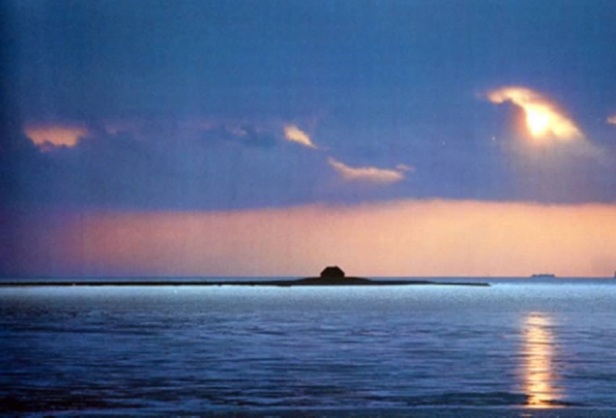In the interview with Denis Jackson, that I published yesterday, I shortened his answer to question 9. The full response is so special that it deserves a post of its own. So with profuse thanks to Denis Jackson, I herewith conclude GLM V with a world exclusive.
9) Are you tempted to translate Storm’s poetry?
I should love to have the time. Storm was above all a lyric poet; as he himself said: ‘My craft of fiction grew out of my lyric verse.’ His words are chosen as much for their sounds as for their meanings – an aspect of his prose essential to be known by a translator. Some critics have described him as ‘primarily a poet for the ear’, a lyrical attitude of mind that is apparent in all his works. The translator will therefore find himself translating ‘poetry’ whether he is aware of it or not.
So we entered the thick forest. It grew increasingly quiet about us and the darkness grew thicker; I barely recognised the graceful figure of Renate as she walked ahead of me so rapidly amid the tall tree-trunks. From time to time I felt as though my happiness were flickering there before me, and that I should grasp it if I didn’t want to lose it. But I knew full well that the girl’s thoughts now excluded everything and everyone but her father.
Eventually, what seemed like grey twilight broke through the trees, the forest came to an end, and there it lay before us – wide open and misty; here and there shimmered a pool of water, with dark round piles of peat rising up beside it; a large dark bird, as though it had lost something, quartering the ground with slow wing beats. (Renate)
Amid all of Storm’s lyric poetry there is one poem that not only perfectly describes the scene from the top of a dyke looking out across the North Sea Tidal Flats (Wattenmeer), and its tiny islands, but also describes his homesickness for his region while he was away in political exile. It is called ‘Meeresstrand’ (‘The Seashore’) and was contained in a letter to his father in 1856. He tells his father that he is homesick, and writes that this poem explains why:
An’s Haf* nun fliegt die Möwe,
Und Dämm’rung bricht herein;
Über die feuchten Watten
Spiegelt der Abendschein.
Graues Geflügel huschet
Neben dem Wasser her;
Wie Träume liegen die Inseln
Im Nebel auf dem Meer.
Ich höre des gärenden Schlammes
Geheimnisvollen Ton,
Einsames Vogelrufen –
So war es immer schon.
Noch einmal schauert leise
Und schweiget dann der Wind;
Vernehmlich werden die Stimmen,
Die über der Tiefesind.

A gull flies over the waters,
And twilight clothes the land;
The sunset’s mirrored, and sparkles,
On the watery flats and sands.
Grey birds are darting, skimming,
Close to a darkening sea;
Like dreams the lonely islands
Rest in fog upon the sea.
I hear the grey mud churning –
Its deep mysterious tone.
The lonely calls of sea-birds –
It was always so at home.
Again the rain falls lightly,
The wind then dies away;
Clearer become the sounds,
That now drift across the bay.
© Denis Jackson 2015
* A Haf in North Friesland is the waters on the surface of the Wattenmeer, it is not a ‘harbour’.
These are most haunting images and sounds, translated by me into English for the first time. It is just a perfect description, both visually and aurally. And having stood there on a dyke myself and looked out, over at this scene, listening to the churning mud and the birds (of which there can be tens of thousands), it is a perfect experience of being one with nature. If there is one poem, as a translator, that binds me to Storm it is this one, for it brings back my own childhood memories of the seashore on the North East coast of England. To translate Storm’s poetry one has to ‘see’ and ‘experience’ its words, without which only lifeless words will result. It is best not to translate Storm’s poetry at all, than to translate it in this way. There are many other such poems waiting to be translated, but to do them justice, much time and effort must be expended. Simply to freely-render the verse would do Storm a gross injustice.
What a lovely treat!
How very nice!
I’ve been reading these posts with interest, as the art of the translator is such an important one. Thanks for sharing, and thanks for this exclusive too!
Lizzy, thanks very much for this. And thanks to Denis Jackson. What a good idea.
As I have described on my site, I have been to Husum and Storm’s country. Jackson’s books, with their fine notes, serve well as a guidebook to the area. I have never been to a place where the spirit of an author is so closely connected to the history and even the landscape.
It won’t surprise you then,Tom, that, following this series of posts, I am planning my own pilgrimage to Husum. Next year, hopefully,